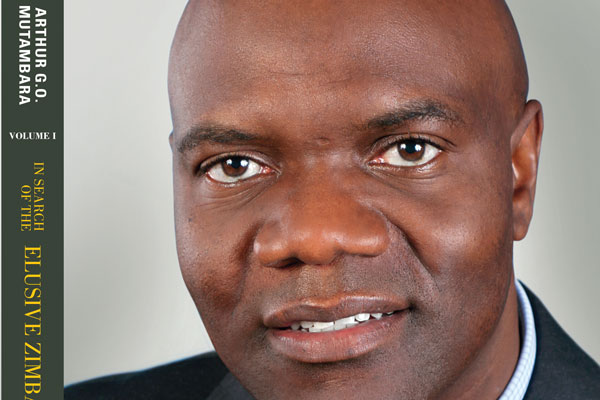
ARTHUR Mutambara has written an engaging work — In Search of the Elusive Zimbabwean Dream Volume 1 — that is a combination of presentations between the mid-1980s and 2000, and very selective autobiographical details.
BY BRIAN RAFTOPOULOS

The book provides a description of the author’s very impressive academic record from his high school days to his brilliant achievements at University of Zimbabwe (UZ) and Oxford University, as well as his work experiences in the United States.
These achievements provide Mutambara with a great deal to be proud of and he displays this pride with great exuberance and sparse humility.
However, as part of the author’s intention to detail his academic record, he also provides a range of presentations in an attempt to set out what he describes as “thought leadership” from his heady days as an impressive student leader in the late 1980s to his long sojourn in the United Kingdom and the US.
In these presentations, Mutambara covers several themes including: The movement from his early embrace of the idea of a one party state to a rejection of this proposal; the importance of academic freedom and critical public debate; opposition to corruption and patronage in the State and ruling party; an attempt to balance the discourse of nationalism, the ideals of the liberation struggle, and the need for civic and human rights in the post-colonial period; and the importance of redressing the inequities of the colonial period, while also confronting the need to develop modern economic policies that take cognisance of the current realities of globalisation.
In brief Mutambara’s concerns have been those expressed by the opposition movement in Zimbabwe since the late 1990s.
- Chamisa under fire over US$120K donation
- Mavhunga puts DeMbare into Chibuku quarterfinals
- Pension funds bet on Cabora Bassa oilfields
- Councils defy govt fire tender directive
Keep Reading
In tracking the intellectual influences of Mutambara’s thinking there are at least four sources that can be identified.
Firstly, there are some basic ideas around class and class struggle drawn from the Marxist lexicon, but constructed largely in terms of the economic determinist logic of the Marxism espoused by a few intellectuals at the UZ in the 1980s.
Secondly, there is a strong affinity with the nationalism of the liberation struggle which is complemented by the writings of the radical African-American tradition.
Thirdly, the importance of constitutionalism and democratisation is persistently highlighted.
Lastly, in line with Mutambara’s educational specialisation, the role of technical development in the progress of economic growth is centrally located in his thoughts.
These elements of his thinking take on different emphases at particular moments of the period covered in this volume, but their combination is always apparent.
There are also understandable tensions in their formulation and a preview of the challenges and incongruities that would characterise his later political career when certain aspects of this intellectual and political legacy would take precedence over others.
The tone and formulation of the presentations is also reflective of a dominant form of politics in Zimbabwe. It is less a dialogic mode of engagement than a prescriptive announcement of an assumed factuality.
Despite the calls for popular participation in some of the presentations this form of thinking freedom in the post-colony is more amenable to a top-down statist politics than an opening up of political possibilities beyond the limitation of state led interventions. Thus despite the many criticisms that Mutambara makes of the political establishment in Zimbabwe there is an ironic similarity with nationalist politics in the political forms through which Mutambara, and indeed many politicians across the political spectrum, think through the idea of political transformation.
One can only hope that in the volumes that follow, Mutambara will be more reflective of this problem. One way for him to do that would be a greater engagement with the new and vast historiography of Zimbabwe and the many questions it has raised about the contested forms of politics that have characterised Zimbabwe’s political landscape since the colonial period. This might engender a less formulaic style of intellectual positioning and political reason.
Despite my reservations of this book Mutambara must be commended for compiling his thoughts and opening them up to public scrutiny and debate.
In this he joins a growing list of politicians, particularly dissenters from the ruling party, who have used the biographical mode of writing to question the official history of the ruling party.
Brian Raftopoulos is the director of research and advocacy at Solidarity Peace Trust











